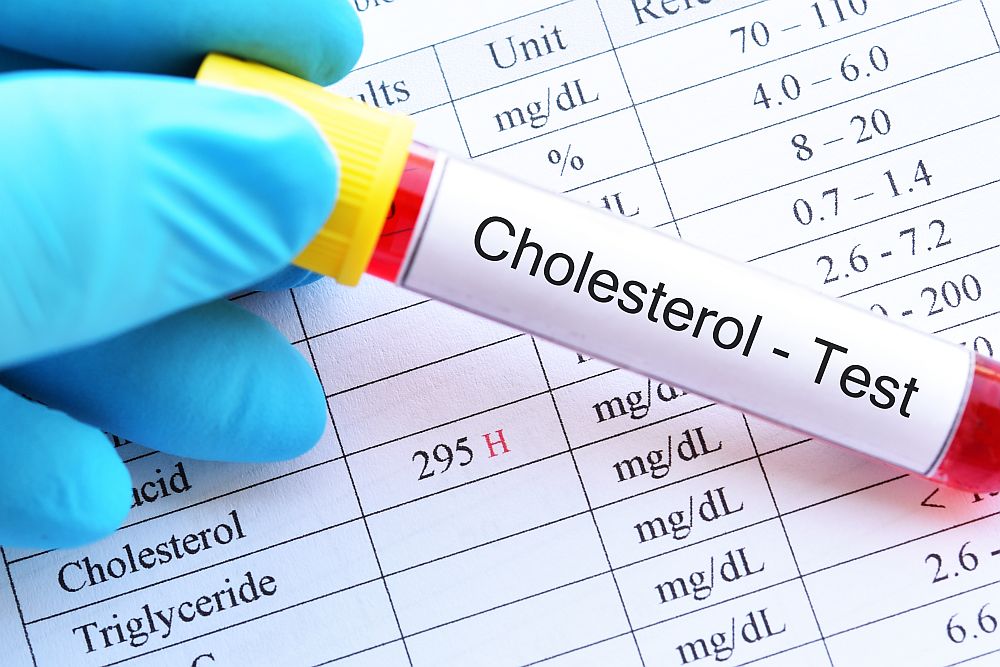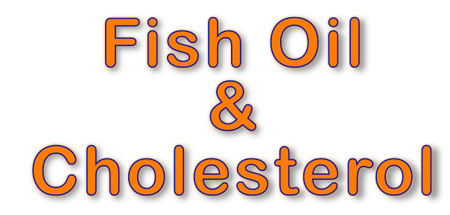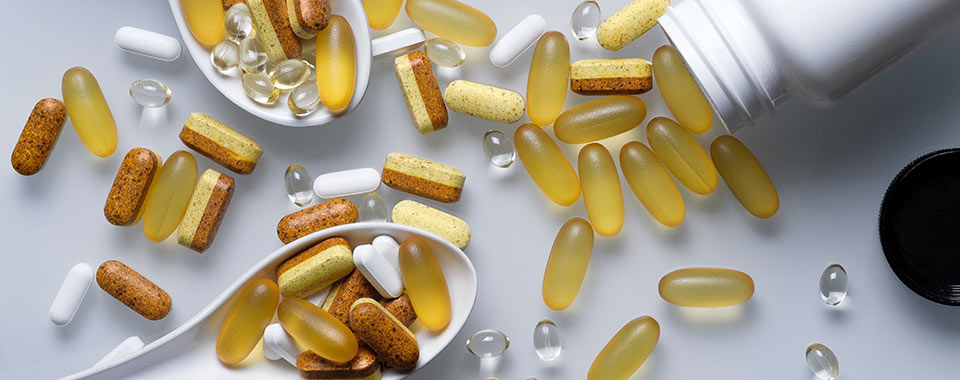The following frustrating conversation happens at least twice a week at our office.
Caller on phone: “Does your fish oil reduce cholesterol?”
Me: “No…it does not. Fish oil doesn’t reduce cholesterol, but what it does…”
Caller [interrupting]: “I need a fish oil brand that reduces my cholesterol. Oh well, I’ll keep looking for one that does.” Click.
This is frustrating on several levels. Not because they didn’t buy our product, but because of the decades of misinformation and fears that led to this discourse.
These callers usually have tried taking cholesterol-lowering statin drugs after their doctors put them on it. But the statin side effects were so severe that they’ve quit taking it and are looking for other options.
I can sense the concern and even desperation in their voices. I don’t blame them!
They have high cholesterol. But their doctor’s fix – statin drugs – caused them severe muscle pains and mental fog.
Thanks to doctors and drug companies, cholesterol scares the bejessus out of people. Every 10 years or so, the ‘normal’ cholesterol range keeps getting reduced.
So I don’t blame the callers’ fear and concern.
They’ve heard good things about fish oil so they begin looking into it. That’s when they call us.
Fish oil doesn’t decrease cholesterol!
At least not dramatically. Like your Lipitor would.
If anyone’s told you otherwise, you’ve been misled.
Sorry.
I see it all the time. Just last week, I read a press release about a medical doctor launching his own brand of fish oil.
The product’s web site and the product label prominently claimed their product would “lower LDL (bad) cholesterol and increase HDL (good) cholesterol.”
Whoa, Doc!
What the science says…An analysis of 47 clinical trials showed that taking fish oils (about 3,000 mg of Omega-3 per day) showed the following results:
Published in the International Journal of Cardiology. *Individual results may vary. These statements have not been evaluated by the Food and Drug Administration. This product is not intended to diagnose, treat, cure, or prevent any disease. Clinical research suggests the omega-3 dosage needed to help maintain healthy triglycerides is 2000-3000 mg per day when used as part of healthy diet and exercise. |
Sure, Omega-3 tends to straighten things out in your metabolism a little bit.
More often than not, if there is any cholesterol lowering, the reduction is correlation and not causation. In other words, the change was not caused by Omega-3.*
Correlation, not causation
In other words, one does not cause the other, but the two are related. (Think ice cream and drowning. A few decades ago, some poindexter figured out that whenever ice cream sales went up, there was increased drowning in pools. He concluded that some protein in ice cream caused people to pass out while swimming. Folks panicked! Well, turns out that people eat ice cream when it’s hot and also go swimming when it’s hot. It was the hot weather-related swimming. Ice cream had nothing to do with it!)
Anyway, when people start taking fish oil, they’re generally concerned about health. They cut out junk food, sodas and cookies. This change in diet and lifestyle is the likely cause of lower cholesterol.
LDL cholesterol is not always bad!
LDL has very important repair functions in your body and it is critical in maintaining your immunity. Simply calling all forms of LDL “bad” is silly.
The point I’m making is that fish oil may not reduce your cholesterol. But that is absolutely no reason not to take fish oil!
You take Omega-3 to:
- Help your body function well.*
- Offset the imbalance caused by too much Omega-6 from vegetable oils.*
- Offset deficiency from avoiding seafood.*
The fact that it does not reduce cholesterol SHOULD NOT be a reason not to take Omega-3 supplements or eat fish.
Keeping with the fish theme here, not taking fish oil because it does not reduce cholesterol is like judging a fish by its ability to climb a tree.
I think Einstein put it a little more eloquently…
Parting shot…this is comedy with an important message:
*These statements have not been evaluated by the Food and Drug Administration. This product is not intended to diagnose, treat, cure, or prevent any disease. Clinical research suggests the omega-3 dosage needed to help maintain healthy triglycerides is 2000-3000 mg per day when used as part of healthy diet and exercise.






Hi Karen – the purpose of Omega-3 is to reduce inflamamtion. Yes, it reduces triglycerides too and does several other things. But the key reason to take it is for inflammation, which is at the root cause of several chronic health conditions. If you are taking Omega-3 to reduce cholesterol, you may be disappointed. Because total cholesterol is a mix of number of that are supposed to be both high and low. So your total cholesterol number of 219 tells me hardly anything, other than it is a perfectly common number to have if you are a woman over the age of, say, 40. It’s part of why I wrote this article titled ‘Cholesterol – when to panic’:
http://www.omegavia.com/cholesterol-when-to-panic/
http://www.omegavia.com/fish-oil-cholesterol/
Yes, DHA by itself, can increase LDL cholesterol. EPA does not. But we shouldn’t panic about LDL increase from DHA yet because we don’t know if the LDL increase from DHA increases risk. I’m sorry that this is not simple or black and white.
If you have a good diet as you say, which should include a few egg yolks and some seafood every week, then you should be fine taking just the EPA 500. If you don’t eat eggs and seafood regularly, then you may want to consider taking regular OmegaVia. But if regular OmegaVia pills are too big, then you may want to try this product made by our sister company: http://www.amazon.com/Pharma-Grade-InnovixLabs-Concentrated-Burp-Free-Capsules/dp/B00F5ZV6W6/ This is a small, enteric-coated pill, just like EPA 500, but it has more DHA.
Hi John – yes, 3 OmegaVia per day will help. Most of our customers who take OmegaVia to manage triglycerides take 4 per day. TG decrease is dose dependent. But before you take any supplement, try reducing alcohol, soda, sweets, juices, and milk – basically any beverage with calories. Then go after anything that contains sugar or flour. These are the offending foods that are causing your dangerous triglyceride levels. Oh by the way, your doctor meant ‘4 grams of Omega-3’ not 4 grams of fish oil. Most fish oils are only 25-30% Omega-3, so 4 grams of fish oil would only get you about 1 grams of Omega-3, which is not enough to drop your TG.